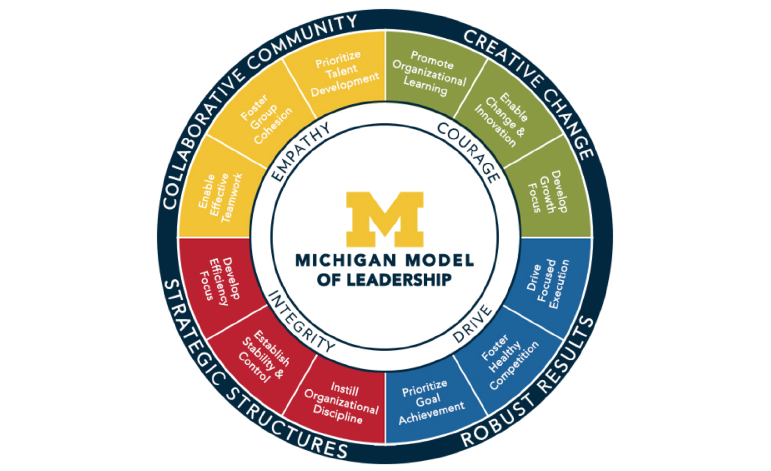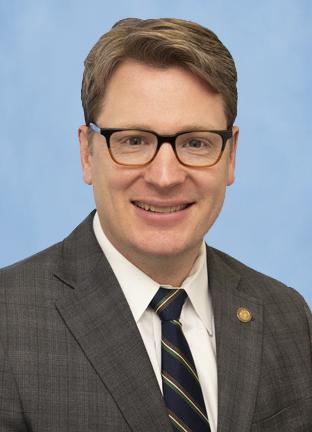

What is a mental model?
A mental model is a representation of something in the real world, using discrete concepts to help people understand that phenomenon. For example, “supply and demand” is a useful mental model that explains how prices of goods are set in the economic market. Another economic model, the “tragedy of the commons,” describes how shared resources are likely to be depleted by self-interested parties. This model has been used to represent current events regarding environmental resources, such as the oceans (overfishing) or the atmosphere (climate change).
As referred to in their name, mental models also exist in individuals’ minds as how people see the world. They are a simplified representation but are built from each person’s unique qualities and experiences. For example, the way someone views an interpersonal conflict at work is likely related to their personality as well as previous experiences with conflict from their personal life as well as in professional settings.
Why are mental models important?
Mental models guide our behavior, often subconsciously. They can be used to help people understand common leadership challenges in a productive way, by reframing situations in an adaptive direction. For example, we introduced two new models:
- The Competing Values model helps residents understand their preferred leadership style, and how different styles can generate interpersonal conflict.
- The Fundamental State of Leadership frames leadership as a state that individuals can enter by considering their goals, values, interpersonal relatedness, and openness.
The Competing Values Model
The Competing Values model describes four competing forces in an organization: Robust Results, Collaborative Communities, Strategic Structures, and Creative Change (Quinn, Cameron, 1999). These forces are often at odds:
- Robust Results: values performing under pressure and competing with others to deliver results.
- Collaborative Communities: values building high-quality relationships and considering the needs of others in the organization.
- Strategic Structures: values reliable processes, doing things right according to standards and regulations.
- Creative Change: values visionary thinking and innovative ideas that may threaten the status quo.

Michigan Model of Leadership
Empathy → Collaborative Community
- Enable Effective Teamwork.
- Foster Group Cohesion.
- Prioritize Talent Development.
Courage → Creative Change
- Promote Organizational Learning.
- Enable Change & Innovation.
- Develop Growth Focus.
Drive → Robust Results
- Prioritize Goal Achievement.
- Foster Healthy Competition.
- Drive Focused Execution.
Integrity → Strategic Structures
- Develop Efficiency Focus.
- Establish Stability & Control.
- Instill Organizational Discipline.
Each individual’s leadership style may lean toward one of these competing forces. In our session, we highlighted the necessity of each style in a productive organization, but also potential for conflict. As residents discussed the mental model, they could reframe previous experiences with conflict as clashes between competing personality styles. For example, a resident who best identifies with the “Strategic Structures” archetype (reliability, integrity) may clash with another resident who aligns with “Creative Change” (innovation, vision). To the opposing archetype, the first resident may seem rigid while the second seems unfocused. In a different light, however, each resident's strengths can complement the other’s rather than produce conflict. Our discussion illustrated how this mental model could be used to help residents be more aware of their own and others’ motivations in future leadership challenges.
The Fundamental State of Leadership
The Fundamental State of Leadership is a model from Professor Bob Quinn from the Ross School of Business at the University of Michigan. It describes leadership as a state that can be entered by anyone, rather than an innate trait of certain individuals destined for leadership. Great leadership can sometimes be “unlocked” from an organization during a crisis situation—we have all seen groups jump into a higher gear to deal with crisis, such as a multiple trauma like the Boston Marathon bombing. This higher level of organizational functioning is the Fundamental State of Leadership.
To explain this state, we must first understand the normal state. In the normal state, we are:
- Reactive, rather than proactive, focusing on our own comfort rather than on a goal.
- Externally directed, seeking external validation and measures of success rather than living by internal values.
- Self-focused, putting our own needs above others.
- Internally closed to feedback and rejecting new ideas.
The normal state may be maladaptive, but, as named, it is the usual state in which we live. In this state we react to problems that arise in our daily lives and pursue things that bring temporary comfort, but we may never drive positive change and lead effectively. To enter the Fundamental State of Leadership, we can ask these four questions:
- What is the result I want to create? This moves us from reactivity to proactivity toward a greater goal.
- Am I internally directed? This pushes us to consider whether we are abiding by inner values and integrity.
- Am I other-focused? This asks us to consider the good of others over our own gain.
- Am I externally open? This drives us to accept new ideas and feedback that may initially make us uncomfortable.
Our group of residents discussed how this model could be used to approach situations in our everyday lives. For example, the hospital can be a stressful place full of unhappy people, and a resident’s life may be unpredictable and busy. However, the four questions can help reframe a situation from the normal state to one focusing on caring for patients (the result) with integrity (internal direction) and compassion (other focus), while remaining open to others’ input (externally open). This model can be used in specific situations as well, and serves as a useful mental framework to guide behavior and solve problems.
Mental Models to Guide Behavior and Change Culture
In summary, mental models are representations of the real world that help people process situations. By imparting new mental models—of leadership theory, or productive ways to deal with conflict—we hope to equip residents with helpful frameworks as a part of our intentional leadership development program.
From a step back, new mental models may help shift a culture within an organization—a residency program, or a Department of Surgery. For example, the old mental model of a successful Surgery department may have included a strict hierarchy with limited cognitive diversity, full of academic surgeons competing to excel in traditional domains as surgeon-scientists or clinical giants. As we move forward, we have a new mental model of what makes a Department of Surgery successful: a community where all individuals are given resources to flourish, promoting inclusion, new endeavors, and diversity of thought.
Article by Joceline Vu, MD, and Justin Dimick, MD, MPH

Joceline Vu, MD

Justin B. Dimick, MD, MPH
Contact Us
Reach out to join the conversation or to learn more about how to implement the Michigan Promise. Connect with the Department of Surgery or our faculty on Twitter to share your ideas or get in touch with the Office of Faculty & Resident Life to schedule a Michigan Promise presentation at your institution. You can also fill out our Michigan Promise Inquiry Form with any questions or comments.
Department of Surgery
2210F Taubman Center
1500 E. Medical Center Dr.
Ann Arbor, MI 48109
Phone: 734-232-5528
Email: [email protected]
Twitter: @UMichSurgery
Hashtag: #MichiganPromise
